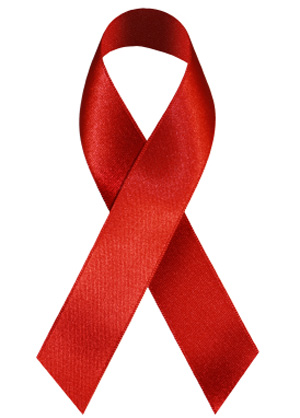Everything you need to know about HIV/AIDS in four easy answers
According to the Whitman Walker Clinic, one in 20 adults in the District of Columbia is infected with HIV, a  higher rate than even most sub-Saharan African countries. Needless to say, DC has quite an epidemic on its hands. So today on Calvary Comments we are going to tackle: Everything you need to know about HIV/AIDS in four easy answers.
higher rate than even most sub-Saharan African countries. Needless to say, DC has quite an epidemic on its hands. So today on Calvary Comments we are going to tackle: Everything you need to know about HIV/AIDS in four easy answers.
What is HIV?
The Center for Disease Control and Prevention estimates that more than one million people in the United States are living with HIV. Anyone can have or spread HIV- men, women, and children of any age. HIV, human immunodeficiency virus, is a virus that destroys specific blood cells (CD4+T cells) which are crucial for the body to fight off other infections, diseases, and cancers. It is also the virus that causes acquired immune deficiency syndrome (better known as AIDS).
AIDS is the final stage of HIV, and it can take many years to develop. When a person’s CD4+T cells drop below a certain level they will be diagnosed with AIDS; their immune system is failing and their ability to fight infection is severely diminished. Neither HIV or AIDS can be cured, but a diagnosis is not a death sentence. As long as the virus is managed, one can live a long, healthy HIV positive life.
How do people get HIV?
HIV is spread primarily by having unprotected sex (anal, vaginal or oral) with an infected person or sharing syringes, needles or other injection drug paraphernalia with an infected person. It can also be passed from a mother to her child in-uterus, during birth, or through breast feeding. When these fluids-blood, semen, vaginal fluids, breast milk- of an infected person enter the bloodstream of another individual, they can contract HIV.
However, there are many misconceptions. One cannot get HIV from public bathrooms, sharing cups, bug bites, or touching someone who has HIV/AIDS. There must be an exchange of bodily fluids directly into the bloodstream.
What are the symptoms of HIV?
Many people who are HIV-positive do not have any visible symptoms at all. Most of the symptoms and illness of HIV come from the infections that attack the already damaged immune system. They are similar to most other common illness, such as the flu or strep throat. People living with HIV go through periods of illness followed by once again feeling fine, just as with other illnesses. The progression of the disease varies from person to person, and there is no sure-fire sign or symptom of being HIV positive. And as an HIV positive person’s immune system continues to weaken over months or years, the opportunistic infections will become more severe.
The only true way to determine if you are HIV positive is to be tested.
What are the methods of treatment?
There are more than two dozen different medications to help manage HIV. The choice of treatment depends largely on a person’s CD4+T count and viral load.
The best things you can do for yourself are to engage in safe behavior, get tested and make sure you know the HIV status of your sexual partner.
OK, so maybe that wasn’t everything you need to know. HIV/AIDS is complex illness. To learn more about preventing or living with HIV check out these sites: